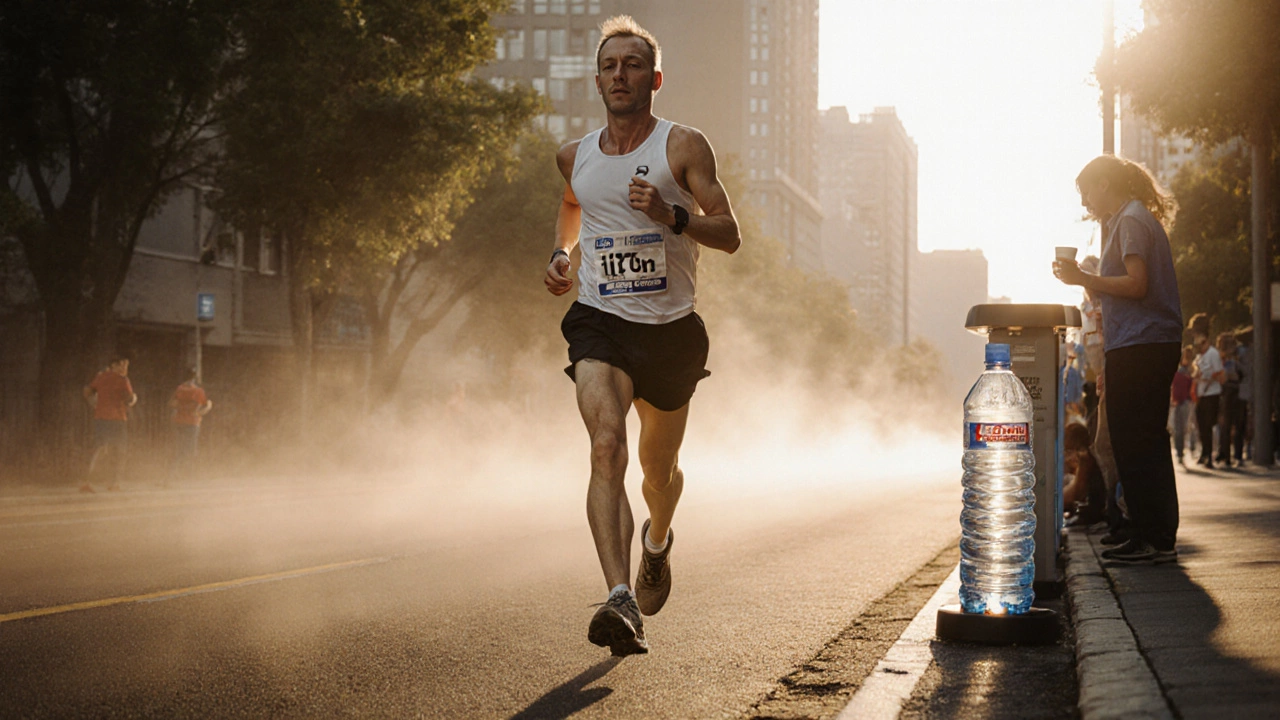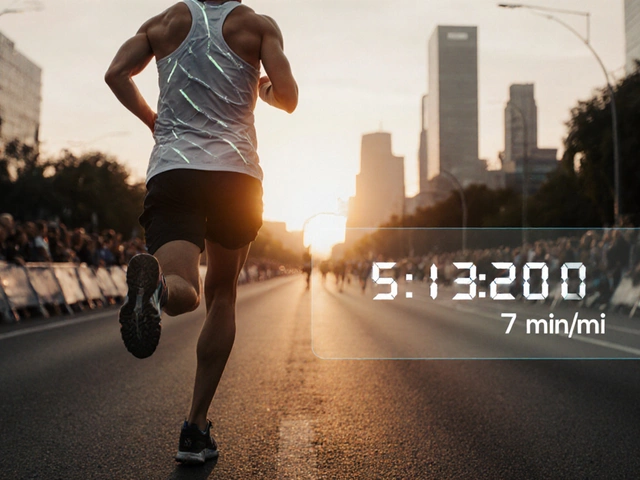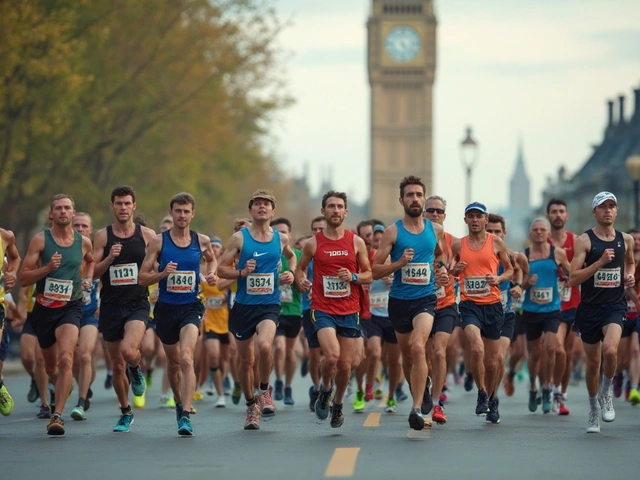What Pace Should You Run a Marathon in 6 Hours?
Marathon Pace Calculator
Calculate Your Finish Time
What pace do you currently run? Enter your average pace to see your potential marathon finish time.
Target Finish Time
Your current pace will finish the marathon in --:--
If you’re aiming to finish a marathon in six hours, you’re not racing against the clock-you’re racing against doubt. Maybe you’ve never run more than 10 miles. Maybe you’ve tried before and hit the wall at mile 18. Maybe you’re not trying to be fast-you’re trying to be done. And that’s okay. Finishing a marathon in six hours isn’t about speed. It’s about consistency, patience, and showing up when your body wants to quit.
What’s the exact pace for a 6-hour marathon?
A full marathon is 26.2 miles. To finish in six hours, you need to average 13:45 per mile. That’s not a sprint. It’s not even a jog. It’s a steady, sustainable shuffle that keeps your legs moving without burning out. Think of it like walking faster than a normal stroll but slower than your usual brisk walk. You should be able to hold a short conversation while running this pace. If you’re gasping for air, you’re going too fast.
That pace works out to about 8.5 kilometers per hour. If you’ve ever walked a 5K in under an hour, you already know what this feels like. Now imagine keeping that rhythm for six straight hours. No sprints. No stops. Just steady forward motion.
Why 6 hours is a smart goal for beginners
Six hours isn’t a backup plan-it’s a real target. Most people who finish marathons in under six hours are first-timers who trained smart, not hard. They didn’t run 80 miles a week. They didn’t do speedwork every Tuesday. They showed up for their long runs, even when it rained. They walked through water stations. They ate a banana at mile 18. And they crossed the line with tears in their eyes.
The average marathon finish time in the U.S. is around 4:30 for men and 4:50 for women. But those numbers are skewed by elite runners and serious athletes. When you look at the bottom 20% of finishers, nearly half of them take between 5:30 and 6:30. You’re not slow-you’re in good company.
How to train for a 6-hour marathon
You don’t need a coach or a fancy app. You need consistency. Here’s what actually works:
- Start with a base. If you can’t run 3 miles without stopping, start there. Build up to 5 miles. Then 8. Then 10. Don’t rush. Take 8-12 weeks just to get comfortable running longer distances.
- Do one long run per week. Every weekend, add 30-60 minutes to your longest run. Start at 8 miles. Work up to 18-20 miles. Don’t try to hit 26.2 in training. Your body doesn’t need it. It just needs to know it can keep going for hours.
- Run at your goal pace (or slower). On your long runs, spend the last 2-4 miles at your target 13:45 pace. If that feels too hard, slow down. It’s better to finish your long run feeling strong than exhausted.
- Walk when you need to. Many 6-hour finishers use a run-walk strategy: run for 10 minutes, walk for 1 minute. Or run 5, walk 1. It cuts down on fatigue and keeps your muscles fresh. There’s no shame in walking. The clock doesn’t care how you move-it only cares that you cross the line.
- Practice eating and drinking. You’ll need about 30-60 grams of carbs per hour during the race. Gels, bananas, sports drinks-test them on your long runs. Don’t wait until race day to try something new.
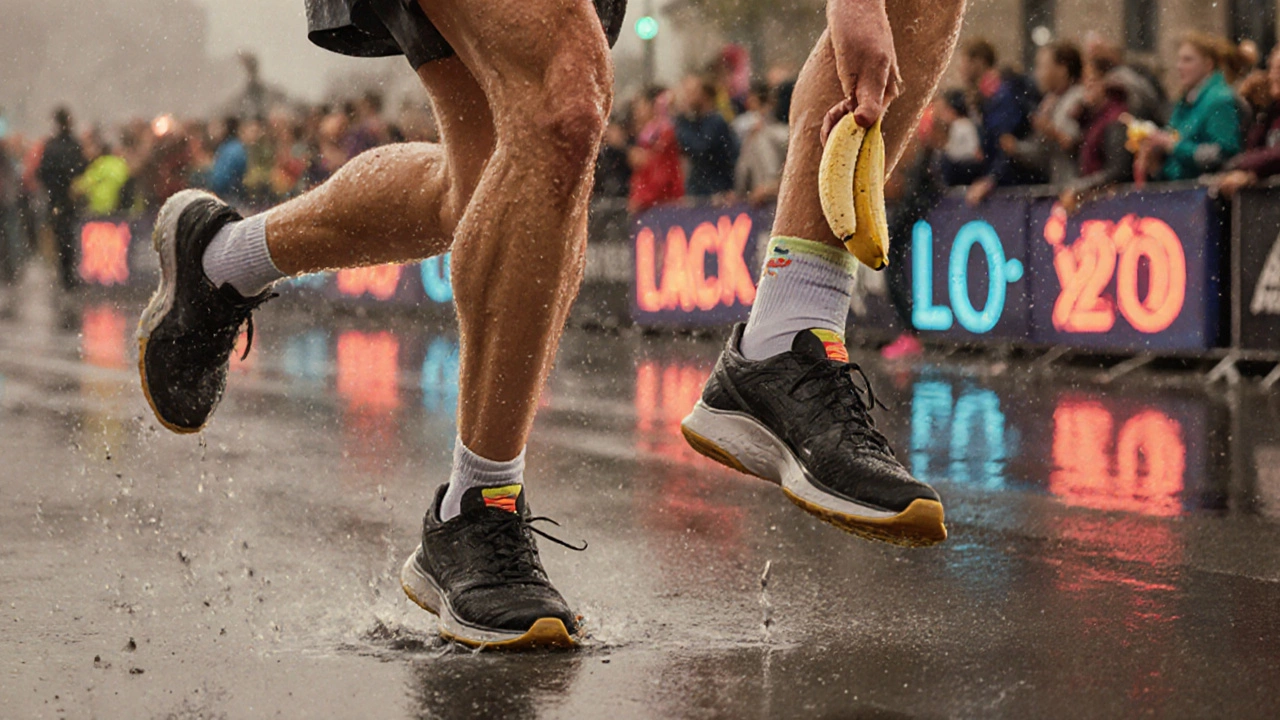
What to expect on race day
At mile 10, you’ll feel great. At mile 18, you’ll wonder why you started. At mile 22, your legs will feel like lead. That’s normal. The key isn’t to fight it-it’s to accept it and keep moving.
Most people who fail to finish a marathon do it between miles 20 and 24. They push too hard early. They skip walking breaks. They don’t hydrate. They think they have to run the whole thing. You don’t.
At mile 20, you might see runners sprinting ahead. Ignore them. They’re burning matches. You’re saving yours. Your job isn’t to keep up. It’s to keep going.
Common mistakes that make 6 hours impossible
- Starting too fast. If you run the first 5 miles at 11:00 pace, you’ll crash by mile 16. Stick to 13:45 or slower.
- Skipping long runs. You can’t fake endurance. If you’ve never run 16 miles, you won’t make it to 26.2 without serious struggle.
- Not practicing your nutrition. Running on an empty stomach after 15 miles is a recipe for bonking. Eat before and during the race.
- Wearing new shoes. If your shoes haven’t been broken in for at least 50 miles, you’ll get blisters. Your feet will thank you.
- Ignoring the weather. Wind, rain, or heat can add 10-20 minutes to your time. Dress for conditions, not for the forecast.
Real-world examples: Who finishes in 6 hours?
I’ve seen a 72-year-old retiree finish in 5:58 using a run-walk method. I’ve seen a mom who trained during her baby’s nap times cross the line in 6:12. I’ve seen a guy with a bad knee finish in 6:30, walking most of the last 10 miles. They didn’t have perfect form. They didn’t have sponsors. They just kept moving.
One runner I know, Sarah from Cork, trained on a treadmill because she worked nights. She ran 10 miles every Sunday morning, walked through every aid station, and finished her first marathon in 6:07. Her secret? She didn’t care about her time. She cared about finishing.
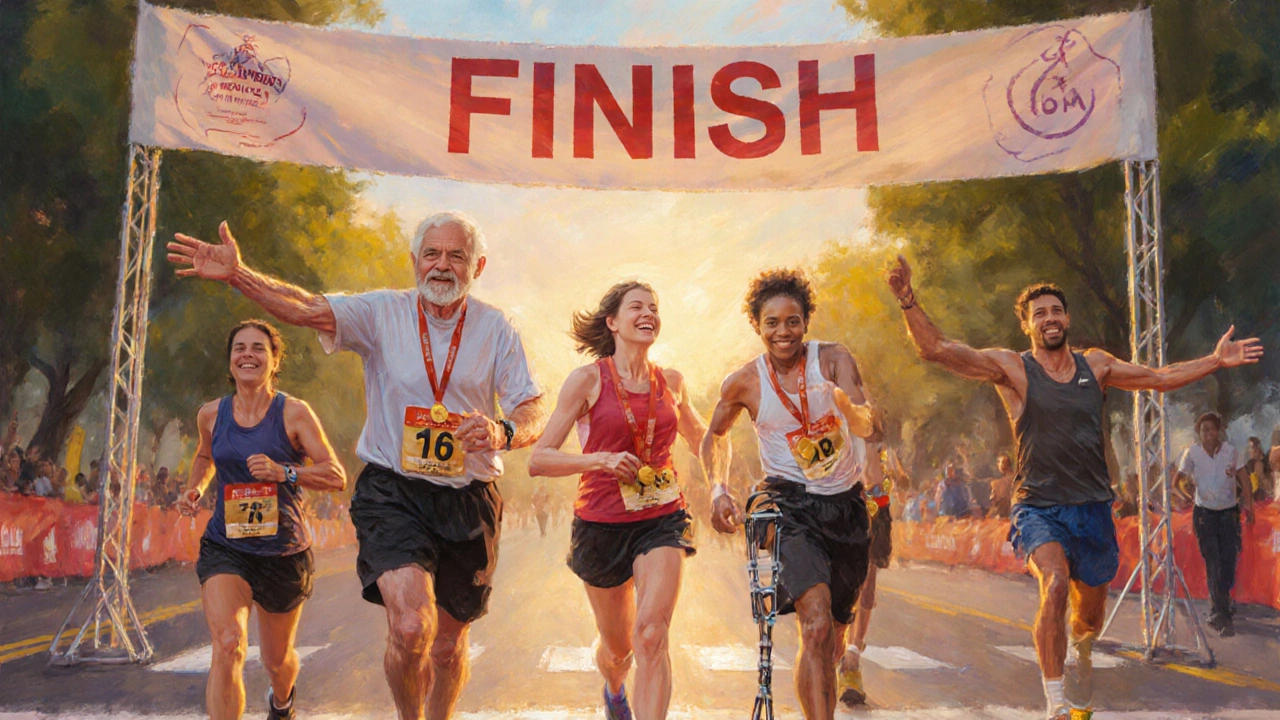
What to do if you’re falling behind
If you’re at mile 20 and your pace is 15:00 per mile, don’t panic. You’re still on track to finish in under 6:30. That’s still a win. Adjust your goal. Instead of 6 hours, aim for 6:20. Or 6:40. The finish line doesn’t have a time limit-only a distance.
Many marathons close at 7 hours. Even if you’re slow, you’re not out of time. Keep walking. Keep breathing. Someone will cheer for you at mile 25. They’ll be the same person who cheered for the guy who ran it in 2:30. Because in a marathon, finishing is the only thing that matters.
Final thought: It’s not about pace-it’s about presence
Running a marathon in six hours isn’t about being the fastest. It’s about being the one who didn’t quit. It’s about showing up when your mind says no. It’s about lacing up your shoes on a cold morning and stepping outside even when you’re tired.
You don’t need to be fast. You just need to be stubborn.
Can I walk a marathon in 6 hours?
Yes, absolutely. Many people finish marathons by walking the entire distance. A steady walking pace of about 18-20 minutes per mile will get you across the line in 7-8 hours. To finish in 6 hours, you’ll need to mix walking with running. Try 10 minutes running, 1 minute walking. That keeps your heart rate up and your muscles moving without burning out.
Do I need to run every day to train for a 6-hour marathon?
No. In fact, running every day increases your risk of injury. Most successful 6-hour finishers run 3-4 days a week. One long run, one easy run, one cross-training day (like cycling or swimming), and one rest day. Recovery is part of training.
What if I can’t run 10 miles yet?
Start where you are. If you can run 3 miles, do that. Add half a mile every week. Use a walk-run method: run for 2 minutes, walk for 1. Repeat. Over 10-12 weeks, you’ll build up to 10 miles. The goal isn’t to run fast-it’s to run longer. Time will come. Distance comes first.
Is it okay to take walking breaks during the race?
Yes, and it’s smart. Even elite runners use short walk breaks during ultras. For a 6-hour goal, plan to walk through every water station. You’ll hydrate better, reduce muscle strain, and recover faster. Many finishers credit walking breaks as the reason they didn’t hit the wall.
What’s the best shoe for a 6-hour marathon?
Any shoe you’ve worn for at least 50 miles. You don’t need expensive, high-tech models. You need comfort and durability. Look for cushioning that supports your foot type, not your Instagram feed. If your current shoes feel good after a 10-mile run, wear them on race day.
How do I avoid hitting the wall?
Hit the wall usually happens because you ran too fast early or didn’t fuel properly. Stick to your 13:45 pace. Eat a gel or banana every 45 minutes starting at mile 8. Drink water or sports drink at every station. Don’t wait until you’re thirsty or hungry. Your body needs fuel before it runs out.
Next steps: Your 6-hour marathon plan
Here’s what to do right now:
- Sign up for a marathon at least 6 months away. Give yourself time.
- Buy a pair of shoes you’ve already tested.
- Start your first long run this weekend-even if it’s only 5 miles.
- Set a reminder to eat a banana before your next run.
- Tell someone your goal. Accountability helps.
You don’t need to be fast. You don’t need to be young. You just need to show up. And if you do, six hours will be yours.
